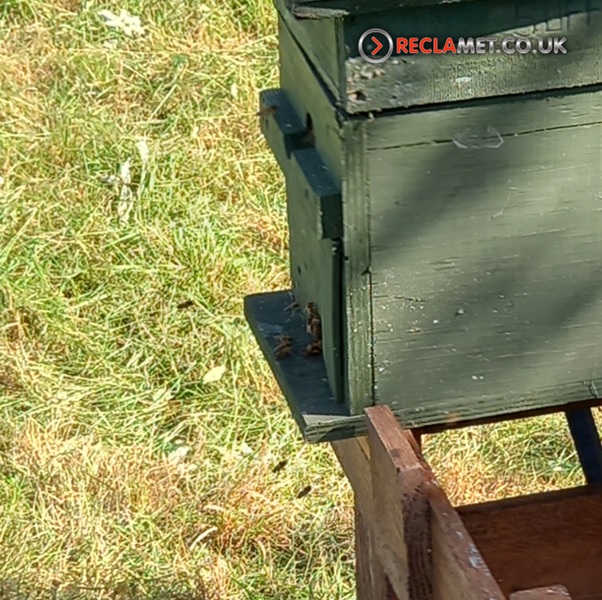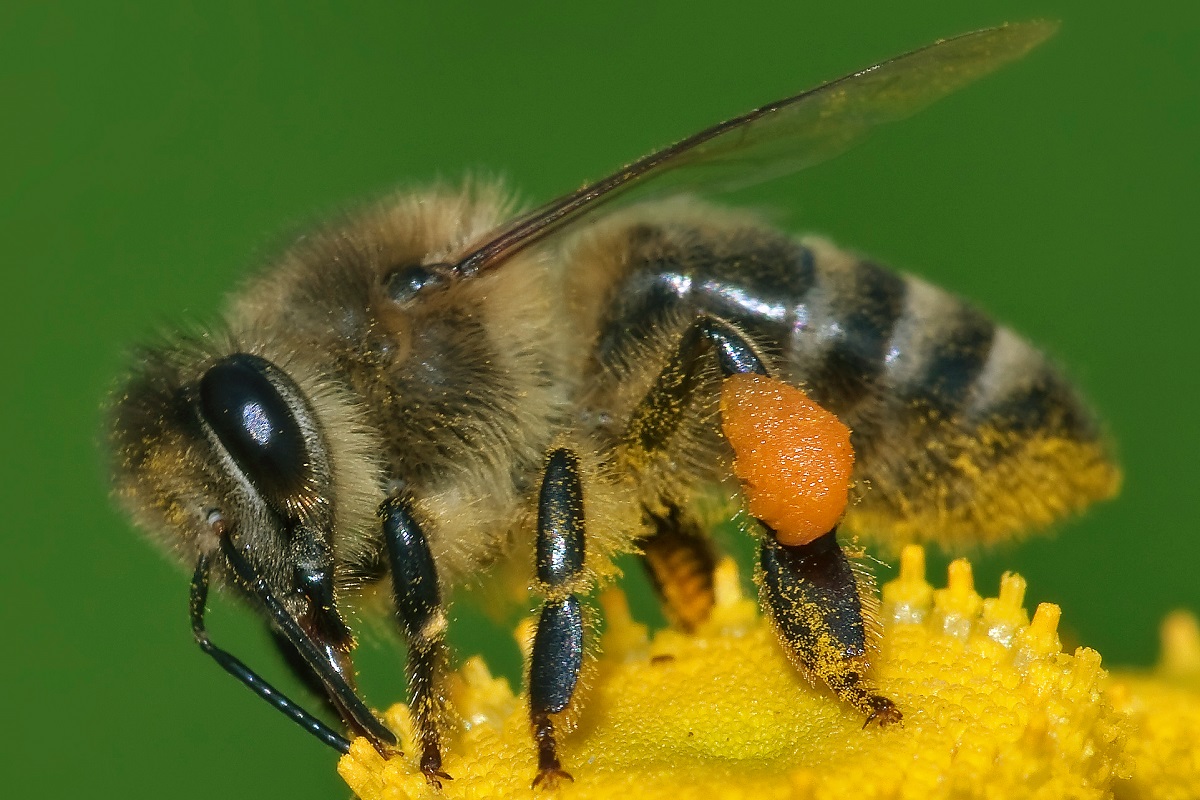Reclamet Limited
View ALL WASTE SERVICES
Reclamet Limited
View ALL WASTE SERVICES


Creating Quite A Buzz – 10000 Bees At Our Warehouse
We recently welcomed 10,000 new starters to our warehouse, courtesy of https://www.facebook.com/Thanetbeekeepers.
Currently, it is only a small Nuc of bees, but as we support the importance of bees in the environment, it will certainly increase.
Bee nucs, short for nucleus colonies or nucleus hives, can play a vital role in helping the environment by supporting bee populations and promoting pollination, which is crucial for the reproduction of many plants, including many food crops.
Here’s how our bee nucs will help the environment:
Pollination: Bee nucs consist of a small, thriving bee colony with a queen, worker bees, and brood (young bees). These colonies often replenish or establish new bee colonies in various locations. As bees forage for nectar and pollen, they inadvertently transfer pollen from one flower to another, facilitating the fertilization and reproduction of flowering plants. This process is essential to produce a significant part of our food supply, including fruits, vegetables, nuts, and seeds.
Biodiversity: Bee nucs can help support local biodiversity by enhancing the diversity of plant species in an area. Different bee species are attracted to different types of flowers, and the presence of diverse bee colonies can lead to the pollination of a broader range of plant species, which can benefit not only crops but also native plants and ecosystems.
Crop yields and quality: Many agricultural crops depend on insect pollinators like bees for their reproduction. By increasing the number of bee colonies through bee nucs, farmers can improve crop yields and the quality of their produce. This can lead to economic benefits for farmers and a more reliable food supply for consumers.
Habitat restoration: Bee nucs can be used in habitat restoration efforts to reintroduce native bee populations to degraded ecosystems. Bees are essential for pollinating many native plants, and restoring bee populations can contribute to the recovery of these ecosystems.
Thank you for reading! from Reclamet’s Friendly Community team. 🏘️

Creating Quite A Buzz – 10000 Bees At Our Warehouse
We recently welcomed 10,000 new starters to our warehouse, courtesy of https://www.facebook.com/Thanetbeekeepers.
Currently, it is only a small Nuc of bees, but as we support the importance of bees in the environment, it will certainly increase.
Bee nucs, short for nucleus colonies or nucleus hives, can play a vital role in helping the environment by supporting bee populations and promoting pollination, which is crucial for the reproduction of many plants, including many food crops. Here’s how our bee nucs will help the environment:
Pollination: Bee nucs consist of a small, thriving bee colony with a queen, worker bees, and brood (young bees). These colonies often replenish or establish new bee colonies in various locations.
As bees forage for nectar and pollen, they inadvertently transfer pollen from one flower to another, facilitating the fertilization and reproduction of flowering plants. This process is essential to produce a significant part of our food supply, including fruits, vegetables, nuts, and seeds.
Biodiversity: Bee nucs can help support local biodiversity by enhancing the diversity of plant species in an area. Different bee species are attracted to different types of flowers, and the presence of diverse bee colonies can lead to the pollination of a broader range of plant species, which can benefit not only crops but also native plants and ecosystems.
Crop yields and quality: Many agricultural crops depend on insect pollinators like bees for their reproduction. By increasing the number of bee colonies through bee nucs, farmers can improve crop yields and the quality of their produce. This can lead to economic benefits for farmers and a more reliable food supply for consumers.
Habitat restoration: Bee nucs can be used in habitat restoration efforts to reintroduce native bee populations to degraded ecosystems. Bees are essential for pollinating many native plants, and restoring bee populations can contribute to the recovery of these ecosystems.
Thank you for reading! from Reclamet’s Friendly Community team.




